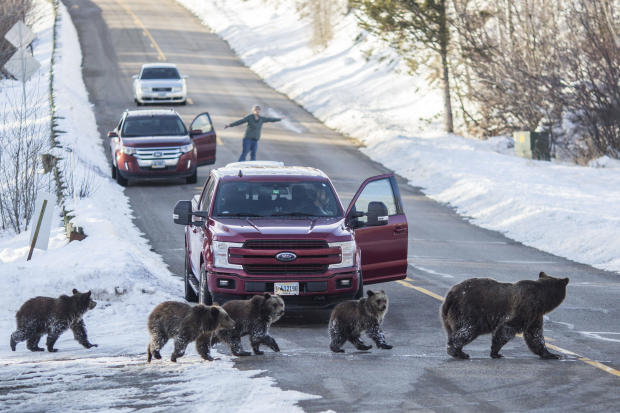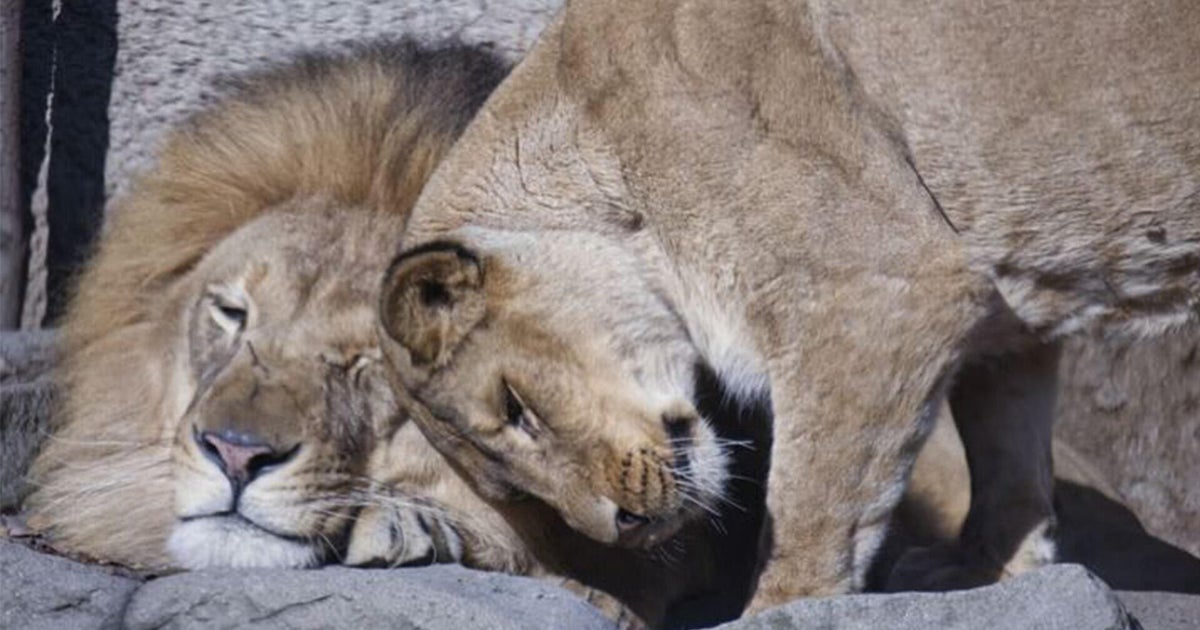Cubs of food-raiding grizzly are trapped and collared "to mitigate human-bear conflicts"
Wildlife managers in northwestern Wyoming have put tracking collars on two of four cubs belonging to a well-known grizzly bear that has been raiding human sources of food. Officials said the move was made "in order to better monitor the bears' location and take steps to mitigate human-bear conflicts."
Wildlife watchers have been familiar with Grizzly No. 399 for years, following her movements and offspring closely. The grizzly and her current litter of cubs have recently run into trouble getting into garbage, apiaries and animal feed in the Jackson area.
"In recent days there has been a significant increase in the frequency of the five bears lingering near human residences and accessing human sources of food," the U.S. Fish and Wildlife Service said in a statement Sunday.
The Fish and Wildlife Service, National Park Service and other agencies on Saturday put tracking collars on two of No. 399's yearling cubs. They trapped three of the four cubs and released one without putting a collar on it, officials said.
The collaring is a "preventive step" meant to help the Fish and Wildlife Service address future problems involving grizzly No. 399 and her cubs, the agency's acting regional director, Matt Hogan, said in the statement.
The statement urged people living in grizzly country to store garbage in bear-resistant containers, keep other potential food inaccessible to bears, keep bird feeders at least 10 feet off the ground and not plant fruit trees.
Grizzlies in the Yellowstone region of Wyoming, Montana and Idaho are protected as a threatened species under the Endangered Species Act. Between 700 and 1,000 live in the region, up from about 100 half a century ago.
Other areas have seen a recent spike in bears raiding human sources of food. In September, as thousands of South Lake Tahoe residents returned to their homes Monday after evacuating during the Caldor Fire, officials issued a warning to be on the lookout for bears who were wandering through the evacuated neighborhoods, ransacking trash cans and homes, scavenging for food. Officials said they received 15 calls of marauding bears in just one week.




